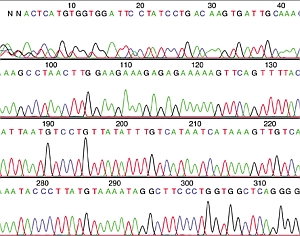9 January 2015. Biotechnology company Biogen Idec and Columbia University in New York are collaborating on research into genetic causes of disease that aims to uncover targets for new treatments and help in the early stages of producing those treatments. The partnership is valued at $30 million, but timetable, intellectual property, and further financial details were not disclosed.
Biogen Idec, in Cambridge, Massachusetts, develops therapies in neurodegenerative diseases, autoimmune disorders, and blood-related conditions. The collaboration is expected to support a genomic sequencing facility at Columbia’s medical center, as well as a postdoctoral program to encourage joint genetics studies involving the university and company.
Research in the collaboration will study genomes of patients showing unusual responses to treatments and investigate linkages between disease processes and genetics. The studies, say the parties, are intended to produce targets for new therapies leading to new treatments, and aid in the development of those treatments. The partnership, says David Goldstein, director of Columbia’s Institute for Genomic Medicine in a joint statement, “will not only focus on target identification and validation at the early stages of drug development, but also facilitate genetically informed evaluation of treatments.”
Biogen Idec brings an established postdoctoral program to the collaboration. That program, says the company, offers new or established postdoc researchers mentorship, encouragement for publishing research findings, and ongoing research support for alumni starting up new academic labs.
Biogen Idec’s pipeline has current and experimental therapies for multiple sclerosis, as well as other genetic and automimmune diseases including rheumatoid arthritis, psoriasis, lupus, and hemophilia. The company also develops drugs for Alzheimer’s disease, neuropathic pain, and blood-related cancers. The company and university say the new facility will make it possible to conduct DNA sequencing quickly to address a broad range of disease types, including largely unmet medical needs, such as amyotrophic lateral sclerosis (ALS) and idiopathic pulmonary fibrosis.
Tom Maniatis, who directs Columbia’s precision-medicine program says, “We expect that the alliance will dramatically advance our understanding of the genetics of these devastating diseases and ultimately lead to mechanism-based treatments, a key aspect of Columbia’s precision-medicine initiative.”
Read more:
- Genentech, 23andMe to Analyze Parkinson’s Genome Data
- Analytics, Genomics Companies Partner on Cancer Therapies
- Human Longevity Accessing Twins Genomic Database
- Genomic Data Analysis Service Launches, Hosts Autism Data
- Astellas, Harvard Partner on Retinitis Pigmentosa Targets
* * *


 RSS - Posts
RSS - Posts
[…] Biogen Idec, Columbia to Partner on Genetics Research […]
[…] Biogen Idec, Columbia to Partner on Genetics Research […]